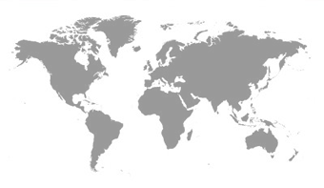Germany To Set New Standards For Animal Feed After Dioxin Scare
The German Cabinet on Wednesday unveiled a new set of rules aimed at raising standards in the country's animal feed industry after the discovery of toxic chemical dioxin, a possible carcinogen, triggered heath alerts worldwide and forced the shut down of thousands of German farms.
"We want to make the food chain more secure," Germany's Food and Agriculture Minister Ilse Aigner said Wednesday. "Boosting surveillance is a key part of this."
Aigner said the new set of rules require feed production companies to report the results of all the tests conducted on their products to German authorities, thereby creating an "early warning system."
Previously, the companies were required to report only the test results that showed excessive levels of toxic chemicals in their products. Under the new rules, private laboratories will also have to report suspicious results concerning dangerous substances such as dioxin.
Dioxins are a by-product of industrial processes and burning of waste. Consumption of food products contaminated with high levels of dioxins have been found to promote cancer and adversely affect pregnant women.
The new set of rules aimed at improving the standards of Germany's animal feed industry will now have to be approved by the country's parliament before they can be enforced. The Cabinet expects the parliament to approve the proposed measures quickly.
The latest development comes after German officials announced last month that tens of thousands of animal feed had been contaminated with dioxins. Authorities also shut down thousands of farms temporarily as a precaution over the issue, mostly in the northern state of Lower Saxony. Almost all of them have since been cleared.
Germany has already launched an investigation into suspected "illegal activity" in the supply of fatty acids contaminated with toxic dioxins to animal-feed makers by a company producing oils intended for use in bio-fuels.
Officials said samples of the fatty acids sold by the Harles und Jentzsch plant in the northern state of Schleswig Holstein to animal feed makers were found to contain more than double the accepted level of dioxin.
Though it was initially believed that the scare was limited to Germany, it emerged later that a batch of eggs contaminated with the cancer-causing chemical had been exported to the Netherlands and from there to Britain in the form of a variety of food stuffs like mayonnaise, cakes and quiches.
British officials have since acknowledged that food products made in Netherlands using eggs from German farms affected by dioxin have entered the country. However, the British Food Standards Agency declared later that those food products were safe for human consumption.
The health concerns triggered worldwide by the dioxin scare had prompted several countries, including China, South Korea, Slovakia and Russia to halt imports of German eggs and pork. The ban on imports of German eggs and poultry meat came despite the German government's assurances that they did not pose any immediate risk to human health.
This article hasn't been commented yet.















Write a comment
* = required field